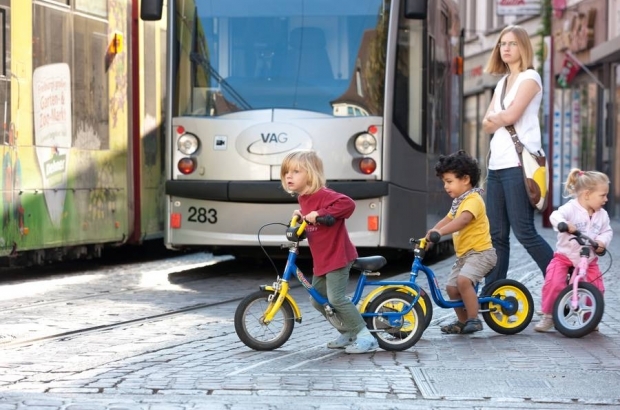- Daily & Weekly newsletters
- Buy & download The Bulletin
- Comment on our articles
3 steps to breathing cleaner air in Brussels
Brussels parents are fuming about the fumes. In July, a group of concerned moms and dads joined forces with asthma advocates to launch Clean Air BXL, a petition to pressure the city of Brussels to step up their game on combatting air pollution.
Air pollution is responsible for 632 premature deaths each year not counting those with respiratory and cardiac illnesses. Clean Air BXL doesn’t think the Brussels Air-Climate-Energy Plan (PACE), which aims to reduce emissions in Brussels by 30% by 2025, goes far enough to ensure that Brussels residents are breathing clean air.
While putting pressure on lawmakers is an important step in improving Brussels air quality, policies are merely a guidelines for individual action – from businesses, governments and ourselves. Meeting PACE’s goals will mean each of us making small changes to our daily routines that have more positive impacts on air quality. There is plenty you can do already to help each of us breathe easier, such as these three tips.
1. Drive less
You knew it was coming. But as predictable as “drive less” is, it must go at number one — especially since Belgium has just made it to the top of the list as the world’s most traffic-congested country.
According to PACE, the transport sector emits 67 per cent of the nitrogen oxide into Brussels’ air as well as 39 per cent of fine particles. Both of these, but especially the latter, have serious health consequences for city residents, including asthma and acute lower respiratory infections, but also heart disease and lung cancer.
Walking and biking is best, in terms of environmental impact, but even by hopping on public transit or joining a carpool just once a week, you can make an enormous reduction in emissions. Not to mention you’ll save hundreds of euros a year on fuel and maintenance on your vehicle.
Public transport isn’t attractive or doesn’t serve you well? Let transport authorities know. If you don’t like what you see, contact STIB, Belgian rail, TEC or De Lijn and tell them. Citizen complaints, petitions and actions – like Clean Air Bxl – put pressure on the city and transport companies to allocate more money and provide better services.
2. Drive better
Sometimes driving is unavoidable. If you need to drive, there are also ways to reduce the impact you have on the environment.
First, improve your fuel economy by accelerating gradually, driving at moderate speeds and avoiding braking hard. Also, make your car as light and aerodynamic as possible by not carrying around things you don’t need, such as roof racks, bike carriers. The more weight and drag your car has, the more effort, thus more energy, it needs to move. A one per cent increase in fuel economy equals one per cent decrease in carbon dioxide emissions, according to the U.S.’s Environmental Protection Agency.
Also, a lesser known trick is to fill up your tank in the morning or at night. By filling up at the coldest time of day, you’ll decrease the amount of noxious petrol that evaporates into the atmosphere.
3. Eat as local as possible
It’s not only moving ourselves about that’s contributing to pollution. These days the items we buy in a typical shop or supermarket have arrived there from all over the world. This transportation has a high cost in polluting emissions globally, but even fairly local products have their impact with thousands of trucks, large and small, making their ways into and around the city every day.
By buying products that were made or grown as close to your house as possible, you can make huge cuts in the emissions going into our air. A great and fun way to do this is to join a CSA, or community supported agriculture (sometimes called GASAP in French) for fresh, organic fruits, vegetables, meats and dairy products from local farms.


















